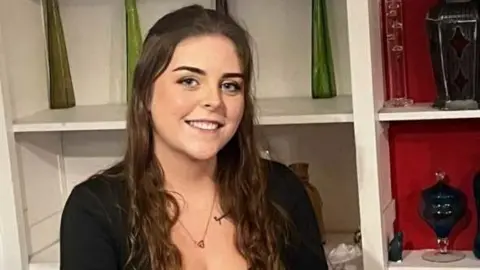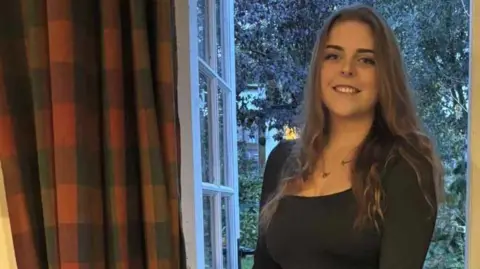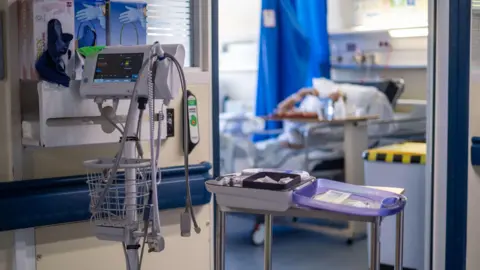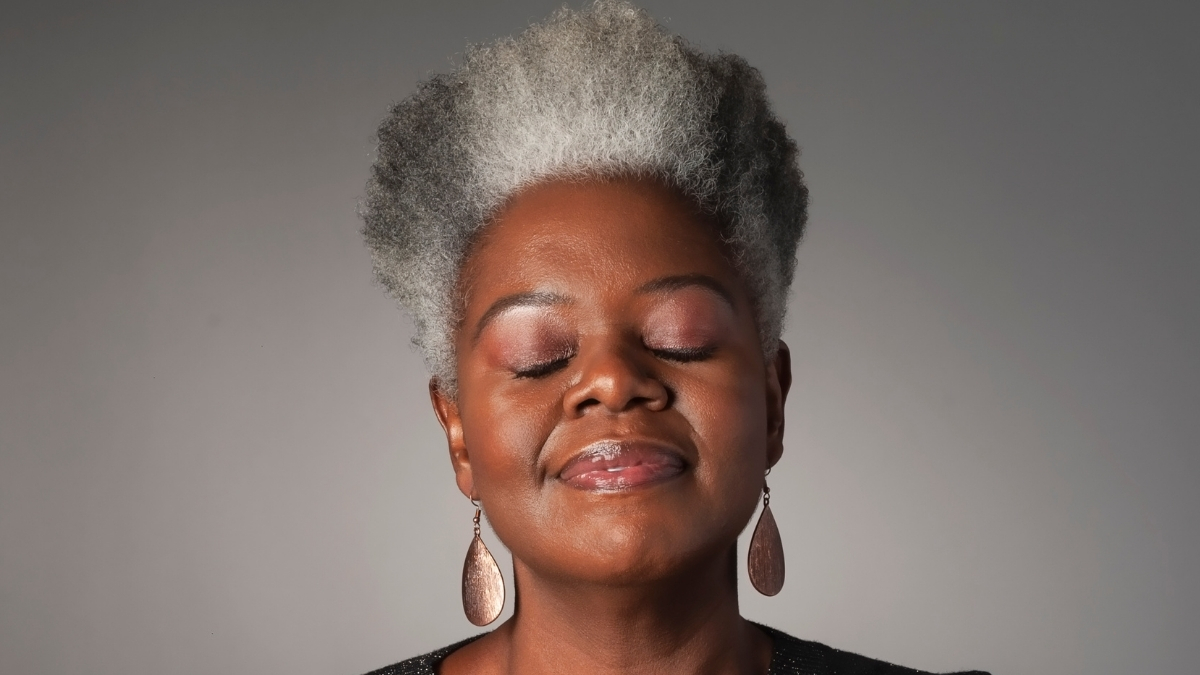 PA Media
PA MediaA woman who had at least 20 health appointments before being diagnosed with bowel cancer has said she was told she was too young to have the disease.
Milli Tanner, a cleaner from Evesham, Worcestershire, first sought help in June 2021, when she was 19, after suffering stomach and back pain and blood in her stool, but doctors told her she probably had piles, irritable bowel syndrome or period problems.
After visiting the GP 13 times and going to A&E, she ordered a bowel cancer test online, which came back positive.
She called the experience “frustrating” adding that it “felt like I was going crazy”.
Between June 2021 and November 2023, Ms Tanner said she had 13 appointments with a GP, went to A&E and had a phone call with NHS 111.
“They said that maybe I’d had a night out, had too much to drink and that was irritating my stomach,” she said.
“I was also showing pictures of the amount of blood I was having – every time I went to the toilet I was bleeding,” she said.
At one point, during a visit to A&E, Ms Tanner went back to her GP, who she said told her she was “too young” to have the potentially deadly disease.
Ms Tanner eventually ordered herself a faecal immunochemical test (FIT) online, which looks for tiny traces of blood in the stool that could indicate bowel cancer.
The test was positive and Ms Tanner took her results to her GP.
“The GP did put through a referral for a colonoscopy but I had a phone call to say it was a 60-week wait,” she said.
“They were following the NHS guidelines and because I was under a certain age it apparently couldn’t be put through as urgent until they did their own FIT test.
“Once the GP had ordered their own FIT test and it was positive, they were able to put it through as urgent.”
 PA Media
PA MediaBy this point, Ms Tanner said she knew she had bowel cancer.
“I knew it was going to be bowel cancer. I knew deep down exactly what it was,” she said. “I’d done my own research. It was frustrating. I felt like I was going crazy.”
Ms Tanner was diagnosed with bowel cancer in November 2023 following the urgent colonoscopy, and was told it had spread to her lymph nodes and had reached stage three.
Ms Tanner decided to have her eggs collected due to the risk of cancer treatment making her infertile.
Her treatment involved chemotherapy and radiotherapy, surgery and was fitted with a permanent stoma.
She said her most recent CT scan and colonoscopy showed no signs of cancer.
 PA Media
PA MediaMs Tanner now wants to raise awareness of cancer among young people.
“I’d say to people, you know your own body better than anybody else does,” she said. “If it feels wrong, then keep going back until you find what is wrong.”
Amy Harding, director of services and impact at the Teenage Cancer Trust, said: “We know from recent evidence and through the young people that we support, that far too often the path to a cancer diagnosis is challenging, traumatic and too long for young people who face delays to diagnosis.”
“Although cancer is rare in this group, it shouldn’t be off the table just because of patient age,” she added.
According to Cancer Research UK, rates of bowel cancer in teenagers and young people up to the age of 24 have increased by 74% since the early 1990s.
The Department of Health has been contacted for comment.
Source link



